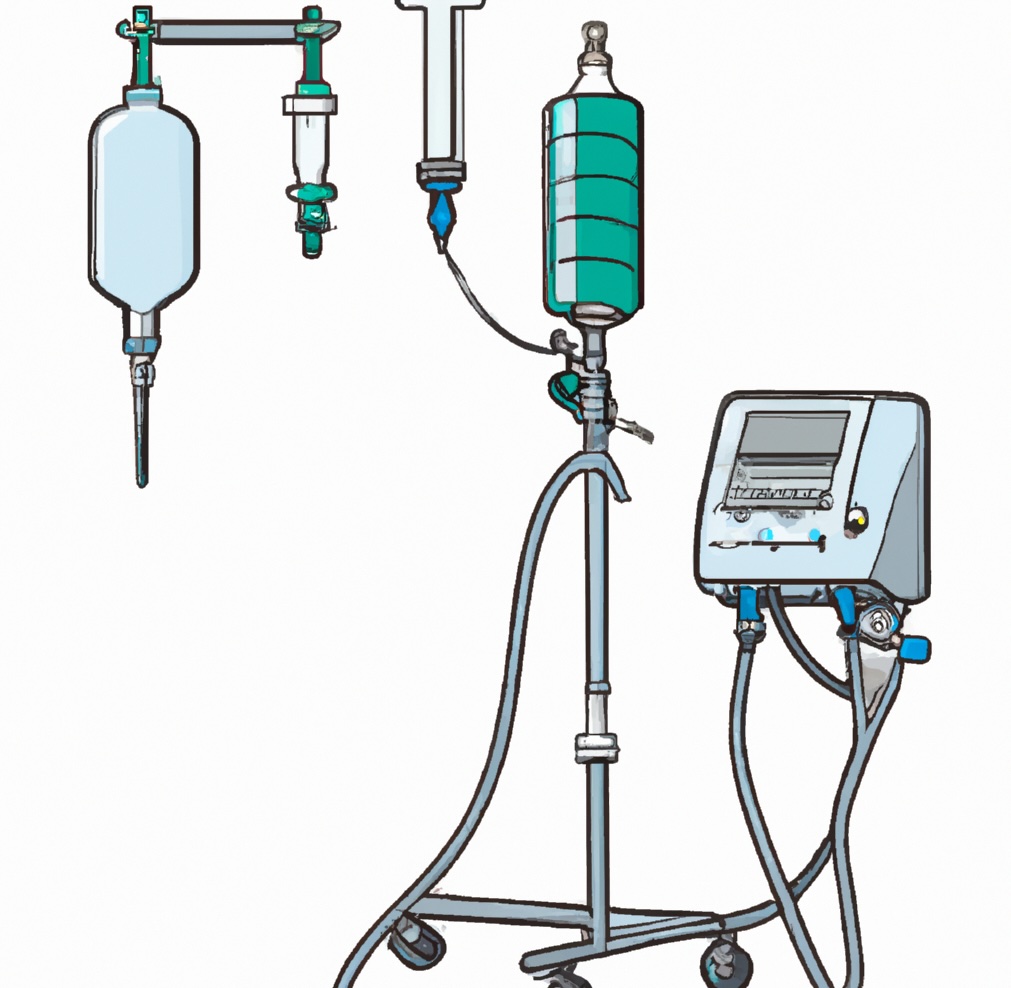Sedation Dentistry
Sedation Dentistry for Seniors: Gentle Care for Golden Years
Sedation dentistry for seniors is a compassionate and effective solution for the barriers that can arise during the aging process. Maintaining good health is a lifelong journey, and oral health remains vital as we age. However, for many older adults, visiting the dentist presents unique hurdles. Conditions like chronic illness, Alzheimer’s, Parkinson’s disease, or heightened anxiety can make dental appointments stressful. At Blende Dental Group, we specialize in providing tailored dental care, focusing specifically on sedation dentistry for seniors and the convenience of in-home services, ensuring that high-quality oral healthcare is accessible and comfortable for older adults and medically complex individuals.
Senior Oral Health and Overall Well-being
As the American Dental Association points out, “The number of U.S. adults 65 years or older will reach 72 million, representing nearly 20% of the total U.S. population.” Now consider that “approximately 18% of adults aged 65 years or older with retained natural teeth have untreated caries” and “68% of these patients have periodontitis.”
Oral health is intrinsically linked to overall systemic health, a connection that becomes even more critical with age. Poor oral health in seniors isn’t just about toothaches or difficulty chewing; it can significantly impact nutrition, contribute to systemic inflammation, and exacerbate existing chronic conditions. Common oral health issues faced by older adults include:
- Dry Mouth (Xerostomia): Often a side effect of numerous medications commonly prescribed to seniors (for conditions like hypertension, depression, allergies, etc.), dry mouth significantly increases the risk of cavities (especially root caries) and gum disease, as saliva plays a vital role in neutralizing acids and washing away food particles.
- Gum Disease (Periodontitis): Years of plaque buildup, potential neglect, smoking history, systemic diseases like diabetes, and dry mouth can lead to advanced gum disease. This condition involves inflammation and infection of the gums and bone supporting the teeth, potentially leading to tooth loss. Crucially, the bacteria and inflammation associated with periodontitis are linked to increased risks of cardiovascular disease, stroke, respiratory infections (like pneumonia), and difficulties managing blood sugar levels in diabetics.
- Tooth Decay (Caries): Especially root caries, becomes more prevalent as gums recede, exposing the softer root surfaces. Dry mouth exacerbates this risk. Difficulty with brushing and flossing due to arthritis or cognitive decline also contributes.
- Tooth Loss: Can result from advanced decay or gum disease. Missing teeth impact chewing ability, leading to potential nutritional deficiencies and affecting self-esteem and speech.
- Oral Cancer: The risk increases significantly with age, particularly for those with a history of tobacco or heavy alcohol use. Regular dental check-ups are crucial for early detection.
- Denture-Related Issues: Ill-fitting dentures can cause sores, difficulty eating and speaking, and potentially lead to fungal infections like oral thrush (candidiasis).
Addressing these requires consistent dental care, but accessing that care is often challenging, making solutions like sedation dentistry for seniors essential.
Introducing Sedation Dentistry for Seniors: A Gentle Pathway to Care
What exactly is sedation dentistry for seniors? It involves using carefully selected medications to help older adults achieve a state of deep relaxation during dental procedures. This isn’t just a convenience – there are specific goals for implementing sedation dentistry for seniors.
- Alleviating fear and anxiety.
- Managing restlessness or resistance associated with cognitive conditions.
- Controlling involuntary movements for patient safety and treatment precision.
- Enhancing comfort during longer or complex procedures.
- Enabling comprehensive dental work, often reducing the total number of visits needed.
Tailored Sedation Dentistry for Seniors: Exploring the Options
At Blende Dental Group, we don’t believe in a one-size-fits-all approach. The type and level of sedation are carefully chosen based on a thorough evaluation of the patient’s medical history, current health status, medication list, level of anxiety, cognitive function, and the specific dental procedures required. Common options suitable for seniors and medically complex patients range from conscious to semi-conscious and deep sleep.
Nitrous Oxide (“Laughing Gas”)
- How it works: Inhaled through a small mask over the nose. It induces a feeling of relaxation and well-being quickly.
- Pros: Very safe profile, mildest form of sedation, patient remains fully conscious and responsive, rapid onset and recovery (effects wear off within minutes of stopping inhalation), allowing patients to often leave the appointment without an escort.
- Suitability: Best for mild to moderate anxiety, shorter procedures, patients with gag reflexes, or those who need just a bit of help relaxing. May be less effective for profound anxiety or significant movement disorders.
Oral Conscious Sedation
- How it works: A sedative medication (typically a pill from the benzodiazepine family, like Valium or Halcion) is prescribed and taken orally about an hour before the appointment.
- Pros: Produces deeper relaxation than nitrous oxide, patients often feel drowsy and may have little memory of the procedure (amnesic effect), easy to administer (just swallowing a pill).
- Suitability: Good for moderate to severe anxiety, longer appointments, patients who want minimal recall of the visit. Requires careful dose adjustment based on age, weight, and medical status. Patients will require an escort to and from the appointment and monitoring afterwards, as coordination and judgment are impaired.
- Considerations: Slower onset than nitrous or IV, level of sedation can be less predictable than IV.
Intravenous (IV) Sedation
- How it works: Sedative medications are delivered directly into the bloodstream through a vein. This allows for precise control over the level of sedation, which can be adjusted throughout the procedure.
- Pros: Rapid onset with a highly predictable and controllable level of sedation (from moderate “twilight sleep” to deeper sedation), allowing complex or extensive work to be completed comfortably in one visit. Continuous monitoring of vital signs (heart rate, blood pressure, oxygen levels) is standard practice.
- Suitability: Often the preferred method for patients with significant anxiety, cognitive impairments (like Alzheimer’s), movement disorders (like Parkinson’s), severe gag reflexes, or those needing extensive dental work (multiple fillings, extractions, implants). It provides the most controlled and adaptable sedation environment. Requires an escort and post-procedure monitoring.
General Anesthesia
- How it works: Renders the patient completely unconscious, requiring breathing support. Typically administered by an anesthesiologist in a hospital or specialized surgical setting.
- Suitability: Reserved for the most complex surgical procedures, patients with profound cognitive or behavioral challenges that preclude other forms of sedation, or those with specific medical conditions necessitating this level of care. Blende Dental Group always uses medical anesthesiologists and can perform procedures in a hospital setting.
How Sedation Dentistry for Seniors Benefits Patients
The positive impact of sedation dentistry for seniors is clearly seen in specific patient groups.
- Alzheimer’s/Dementia Patients: Sedation dentistry for seniors with cognitive decline minimizes distress, confusion, and agitation. It enables cooperation, allowing dentists to work efficiently and safely, making the experience less traumatic for both the patient and caregiver.
- Parkinson’s Disease Patients: Managing tremors and rigidity is crucial for safe dental work. Sedation dentistry for seniors with Parkinson’s relaxes muscles, controls involuntary movements, increases safety, and reduces the physical strain of the appointment.
- Patients with Severe Anxiety/Phobia: Sedation dentistry for seniors overcomes the intense fear that prevents many from seeking care. It helps break the cycle of avoidance and can foster more positive associations with dental visits, facilitating necessary treatment.
- Patients with Chronic Illnesses: By reducing physiological stress (lowering elevated heart rate/blood pressure), sedation dentistry for seniors is beneficial for those with heart disease, COPD, etc. Continuous monitoring during IV sedation adds a significant layer of safety. It makes treatments more tolerable for those who fatigue easily.
The Advantage of Consolidated Treatment Through Sedation Dentistry for Seniors
A major benefit of effective sedation dentistry for seniors (especially oral and IV methods) is the ability to perform more work in a single session. Because the patient is comfortable and relaxed for a longer duration, procedures like multiple fillings, extractions, or crown preparations can often be completed in one visit. This consolidation offers significant advantages.
- Reduced Stress: Fewer appointments mean less overall anxiety and disruption.
- Minimized Logistics: Less travel, less need for caregiver time off.
- Enhanced Comfort: Resolves dental issues more quickly.
- Potential Cost-Effectiveness: Fewer appointment fees can offset sedation costs.
- Improved Outcomes: Facilitates comprehensive treatment planning.
Ensuring Safety in Sedation Dentistry for Seniors
Patient safety is the absolute priority in sedation dentistry for seniors. Our protocols at Blende Dental Group are comprehensive and ensure predictable outcomes.
- Thorough Medical Review: Detailed analysis of health history, medications, and allergies, often involving consultation with the patient’s physician. This is foundational for safe sedation dentistry for seniors.
- Pre-Sedation Health Check: Baseline vital signs and assessment before sedation.
- Individualized Sedation Plan: Careful selection of drug and dosage tailored to the senior patient.
- Continuous Monitoring: Vigilant tracking of heart rate, blood pressure, and oxygen levels during oral/IV sedation by trained staff.
- Emergency Readiness: Certified staff and appropriate emergency equipment/medications on hand.
- Post-Procedure Care and Escort: Clear instructions and the mandatory requirement of an escort for oral/IV sedation are critical safety components of sedation dentistry for seniors.
Prioritizing Oral Health with Sedation Dentistry for Seniors
Oral health is integral to overall well-being and quality of life in later years. Challenges related to aging, health conditions, or anxiety shouldn’t be barriers to essential dental care. Sedation dentistry for seniors provides a safe, effective, and dignified solution, enabling comfort, managing difficult symptoms, and allowing for comprehensive treatment, often in fewer visits.
When this specialized care is delivered with the compassion and convenience of in-home services, as offered by Blende Dental Group, it ensures that older adults and medically complex individuals receive the vital dental attention they need without undue stress or difficulty. Sedation dentistry for seniors is more than just a technique; it’s a commitment to gentle, accessible care.
Take the Next Step Toward Gentle Dental Care
If you believe sedation dentistry for seniors could benefit you or a loved one facing challenges with traditional dental visits – due to age, Alzheimer’s, Parkinson’s, chronic illness, disability, or anxiety – please contact us. Don’t let obstacles prevent a healthy smile.
Please contact us to learn more about our specialized sedation dentistry for seniors and unique in-home dental services. We are dedicated to creating personalized, comfortable, and safe dental care experiences.
Schedule a consultation today in San Francisco or New York. Your comfort and health are our highest priorities.
Let's brighten
that smile
The when and where are up to you.





